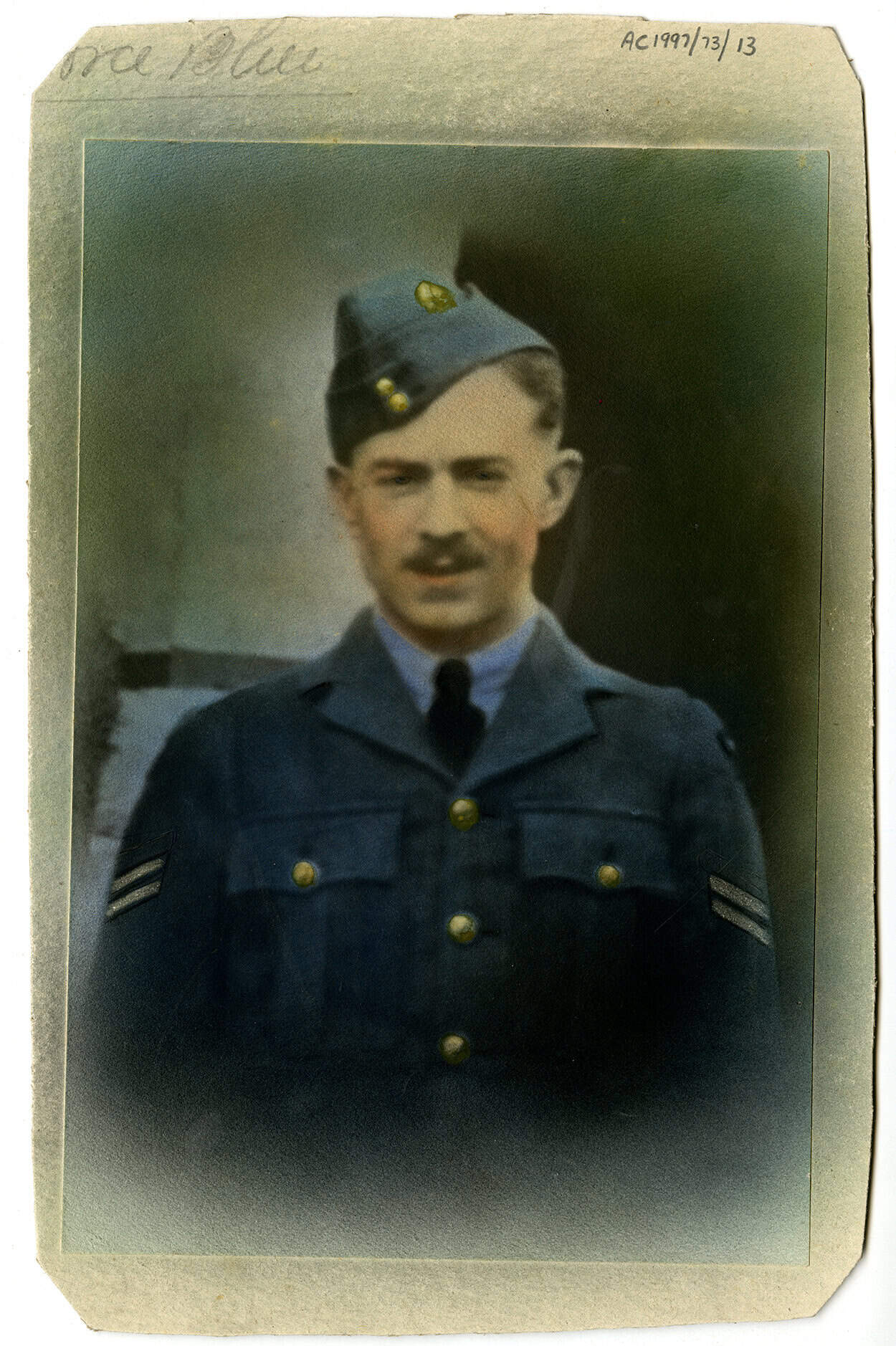As we mark the 80th anniversary of Victory over Japan (VJ) Day the RAF Museum is highlighting the experience of those who served with the RAF in the Far East during the Second World War.
More than 132,000 Allied servicemen became prisoners of war in the Far East. Of this number some 5,102 were members of the Royal Air Force. 1,714 would never return.
Imperial Japanese forces invaded Borneo on the 16 December 1941 and by January 1942 the whole Island had been occupied. A series of prisoner of war camps were established throughout the Island including the Batu Lintang camp which held both military and civilian prisoners.
Corporal Leonard Beckett, an RAF radio mechanic who had been captured on Java was moved to Borneo during 1942.

Cpl Leonard Beckett
RAF Museum AC97/73/13
He was asked by the senior British Officer at the camp to construct a radio out of anything Leonard could get his hands on. Parts were obtained through salvage and exchange or stolen from the Japanese and improvised from various objects.
![The receiver, tuner and generator of the ‘Old Lady’ radio RAF Museum/Iain Duncan 1997/0011/C – 1997/0013/C]](https://assets.rafmuseum.org.uk/app/uploads/2025/08/15091347/1997-0011-C_01-300x238.jpg)
![The receiver, tuner and generator of the ‘Old Lady’ radio RAF Museum/Iain Duncan 1997/0011/C – 1997/0013/C]](https://assets.rafmuseum.org.uk/app/uploads/2025/08/15091543/1997-0012-C_03-scaled.jpg)
![The receiver, tuner and generator of the ‘Old Lady’ radio RAF Museum/Iain Duncan 1997/0011/C – 1997/0013/C]](https://assets.rafmuseum.org.uk/app/uploads/2025/08/15091652/1997-0013-C_01-scaled.jpg)
The receiver, tuner and generator of the ‘Old Lady’ radio
RAF Museum/Iain Duncan 1997/0011/C – 1997/0013/C]
The ‘Old Lady’ was first used during February 1943 and became the camp’s main source of information about the progress of the war. The information gathered from it had to be treated very carefully as prisoners at another camp in Borneo were executed when their radio was discovered. By accepting responsibility for the radio’s construction, Cpl Beckett knew the dangers he faced if the radio or its component parts were discovered.
It was through this radio that the prisoners learned of the Japanese surrender and their forthcoming freedom. Batu Lintang camp was liberated on 11 September 1945. Many of those returning to the UK, including Beckett would spend some time at RAF Cosford located next to the Museum’s Midlands site.
The ‘Old Lady’ radio is just one of the many artefacts forming part of the Museum’s Crate Escape project. Find out more.
Find out more about those who served in the Far East by visiting the Museum’s Collections Online website.
